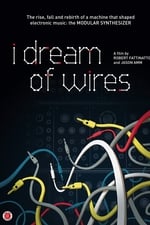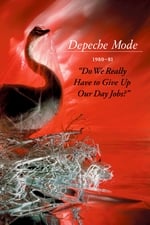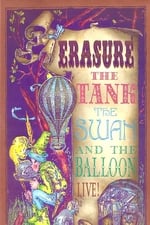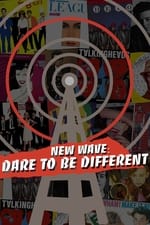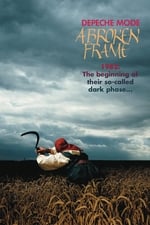Información personal
Conocido por Interpretación
Créditos conocidos 21
Sexo Masculino
Fecha de nacimiento 3 de julio de 1960 (63 años)
Lugar de nacimiento South Woodford, Essex, England, UK
También conocido como
- Vincent John Martin
- Depeche Mode
- Yazoo
- The Assembly
- Erasure
- VCMG
- Vincent Clarke
Puntuación del contenido
100
¡Sí! ¡Buena pinta!
Iniciar sesión para informar de un problema
Biografía
Vincent John Martin (born 3 July 1960), known professionally as Vince Clarke, is an English synth-pop musician and songwriter. Clarke has been the main composer and musician of the band Erasure since its inception in 1985, and was previously the main songwriter for several groups, including Depeche Mode, Yazoo, and the Assembly. In Erasure, he is known for his deadpan and low-key onstage demeanour, often remaining motionless over his keyboard, in sharp contrast to lead vocalist Andy Bell's animated and hyperactive frontman antics.
Erasure have recorded over 200 songs and have sold over 28 million albums worldwide. Clarke was inducted into the Rock and Roll Hall of Fame in 2020 as a member of Depeche Mode.
Vincent John Martin was born on 3 July 1960 in South Woodford, Essex; he later moved to Basildon, Essex. He initially studied the violin and then the piano. Clarke's early musical influences included Sparks, Paul Simon, and Orchestral Manoeuvres in the Dark (OMD), who inspired his interest in electronic music. Clarke also cites electronic influences such as the Human League, Daniel Miller and Fad Gadget.
In December 2013, Clarke listed his "13 LPs that mean the most to him" for The Quietus: Pink Floyd – The Dark Side of the Moon (1973): Kraftwerk – Computer World (1981); The Human League – Travelogue (1980); Simon & Garfunkel – Bookends (1968); T. Rex – Electric Warrior (1971); David Bowie – "Heroes" (1977); The Eagles – Hotel California (1976); OMD – Orchestral Manoeuvres in the Dark (1980); Philip Glass – Glassworks (1982); Genesis – A Trick of the Tail (1976); Michael Jackson – Dangerous (1991); The Sex Pistols – Never Mind the Bollocks, Here's the Sex Pistols (1977); Led Zeppelin – Led Zeppelin IV (1971).
In the late 1970s, Clarke and schoolmate Andy Fletcher formed a short-lived band called No Romance in China, with Clarke on vocals and guitar and Fletcher on bass guitar. In 1979, Clarke played guitar in the Plan, an Ultravox-influenced band, with friends Robert Marlow and Paul Langwith.
In 1980, after the Plan dissolved, Clarke and Fletcher formed Composition of Sound, and were soon joined by Martin Gore. Clarke provided vocals until lead vocalist Dave Gahan joined the band, which was renamed Depeche Mode. At that time he adopted the stage name Vince Clarke, by which he is currently known. The band initially adopted a slick synthesised electropop sound, which produced the studio album Speak & Spell and the Clarke-penned singles "Dreaming of Me", "New Life", and "Just Can't Get Enough" in 1981. ...
Source: Article "Vince Clarke" from Wikipedia in English, licensed under CC-BY-SA 3.0.
Vincent John Martin (born 3 July 1960), known professionally as Vince Clarke, is an English synth-pop musician and songwriter. Clarke has been the main composer and musician of the band Erasure since its inception in 1985, and was previously the main songwriter for several groups, including Depeche Mode, Yazoo, and the Assembly. In Erasure, he is known for his deadpan and low-key onstage demeanour, often remaining motionless over his keyboard, in sharp contrast to lead vocalist Andy Bell's animated and hyperactive frontman antics.
Erasure have recorded over 200 songs and have sold over 28 million albums worldwide. Clarke was inducted into the Rock and Roll Hall of Fame in 2020 as a member of Depeche Mode.
Vincent John Martin was born on 3 July 1960 in South Woodford, Essex; he later moved to Basildon, Essex. He initially studied the violin and then the piano. Clarke's early musical influences included Sparks, Paul Simon, and Orchestral Manoeuvres in the Dark (OMD), who inspired his interest in electronic music. Clarke also cites electronic influences such as the Human League, Daniel Miller and Fad Gadget.
In December 2013, Clarke listed his "13 LPs that mean the most to him" for The Quietus: Pink Floyd – The Dark Side of the Moon (1973): Kraftwerk – Computer World (1981); The Human League – Travelogue (1980); Simon & Garfunkel – Bookends (1968); T. Rex – Electric Warrior (1971); David Bowie – "Heroes" (1977); The Eagles – Hotel California (1976); OMD – Orchestral Manoeuvres in the Dark (1980); Philip Glass – Glassworks (1982); Genesis – A Trick of the Tail (1976); Michael Jackson – Dangerous (1991); The Sex Pistols – Never Mind the Bollocks, Here's the Sex Pistols (1977); Led Zeppelin – Led Zeppelin IV (1971).
In the late 1970s, Clarke and schoolmate Andy Fletcher formed a short-lived band called No Romance in China, with Clarke on vocals and guitar and Fletcher on bass guitar. In 1979, Clarke played guitar in the Plan, an Ultravox-influenced band, with friends Robert Marlow and Paul Langwith.
In 1980, after the Plan dissolved, Clarke and Fletcher formed Composition of Sound, and were soon joined by Martin Gore. Clarke provided vocals until lead vocalist Dave Gahan joined the band, which was renamed Depeche Mode. At that time he adopted the stage name Vince Clarke, by which he is currently known. The band initially adopted a slick synthesised electropop sound, which produced the studio album Speak & Spell and the Clarke-penned singles "Dreaming of Me", "New Life", and "Just Can't Get Enough" in 1981. ...
Source: Article "Vince Clarke" from Wikipedia in English, licensed under CC-BY-SA 3.0.


